Cuba calls for US to end covert operations
The Cuban government has called on Washington to halt hostile covert operations against it, the Morning Star said on August 7.
An Associated Press investigation revealed that a US government program had sent young Latin Americans to Cuba on political missions posing as AIDS-awareness workshop organisers.
-
-
An increasingly popular answer to the ecological crisis facing humanity is the “Green New Deal”, which aims to create “green jobs” to jump start the economy. But, Dan Fitz argues the GND might not provide long term employment and could cause major environmental harm.
-
 At the G77 plus China Summit held in Bolivia that ended on June 15, several Latin American presidents gave public backing to Venezuelan president Nicolas Maduro. They called for regional unity against an bid for “conservative restoration” under way in the South American country. The summit, held in Santa Cruz, eastern Bolivia, brought together 133 countries, about two-thirds of the member states of the United Nations.
At the G77 plus China Summit held in Bolivia that ended on June 15, several Latin American presidents gave public backing to Venezuelan president Nicolas Maduro. They called for regional unity against an bid for “conservative restoration” under way in the South American country. The summit, held in Santa Cruz, eastern Bolivia, brought together 133 countries, about two-thirds of the member states of the United Nations. -
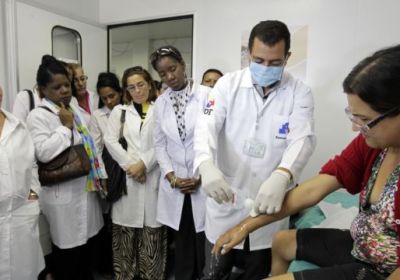 Where No Doctor Has Gone Before: Cuba’s Place in the Global Health Landscape By Robert Huish Wilfred Laurier University Press, 2013 Out of the Mountains: The Coming Age of the Urban Guerrilla By David Kilcullen Scribe, 2013 342 pp, $32.95 It is interesting that Robert Huish and David Kilcullen inhabit the same world, because their books indicate that they view the planet differently, like black and white or perhaps like life and death.
Where No Doctor Has Gone Before: Cuba’s Place in the Global Health Landscape By Robert Huish Wilfred Laurier University Press, 2013 Out of the Mountains: The Coming Age of the Urban Guerrilla By David Kilcullen Scribe, 2013 342 pp, $32.95 It is interesting that Robert Huish and David Kilcullen inhabit the same world, because their books indicate that they view the planet differently, like black and white or perhaps like life and death. -
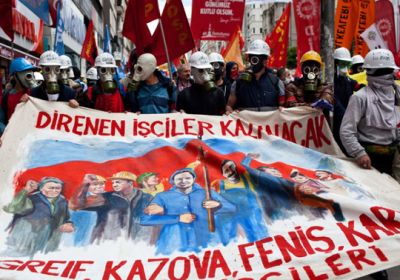 Millions of workers across the globe hit the streets on May 1 for mass rallies marking International Workers' Day. The day was chosen in 1889 as a global day to mark the struggle of the working class by representatives of socialist parties in the Second International. It was held to commemorate the Haymarket Martyrs, anarchists executed in Chicago for their role in the struggle for an eight-hour day in 1886.
Millions of workers across the globe hit the streets on May 1 for mass rallies marking International Workers' Day. The day was chosen in 1889 as a global day to mark the struggle of the working class by representatives of socialist parties in the Second International. It was held to commemorate the Haymarket Martyrs, anarchists executed in Chicago for their role in the struggle for an eight-hour day in 1886. -
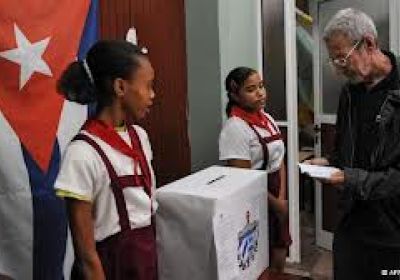 Cuba & Its Neighbours: Democracy in Motion By Arnold August Fernwood Publishing January 2013 288pp, C$29.95 Surrounded by emerging participatory democracies unshackling themselves from US hegemony, Arnold August writes that Cuba is a laboratory for people-powered politics.
Cuba & Its Neighbours: Democracy in Motion By Arnold August Fernwood Publishing January 2013 288pp, C$29.95 Surrounded by emerging participatory democracies unshackling themselves from US hegemony, Arnold August writes that Cuba is a laboratory for people-powered politics. -
The Cuban Communist Party said heroine Melba Hernandez, a member of the party’s Central Committee and parliamentary deputy passed away March 9, from complications linked to Diabetes Mellitus, a disease she had suffered from during years. Hernandez was born July 28, 1921, in the town of Cruces, in the former Las Villas province, today’s Villa Clara in the centre of the country. Hernandez graduated as a lawyer in 1943 at the University of Havana.
-
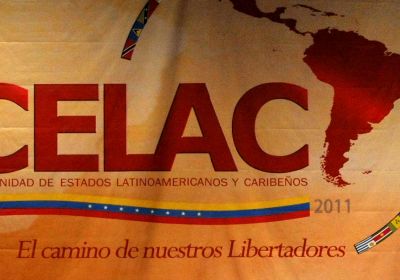 Venezuelan President Nicolas Maduro has called for an “eradication” of “colonialism” in Latin America at the annual summit of the Community of Latin American and Caribbean States (CELAC). During the summit held in Cuba’s capital, Havana, over January 28 and 29, Maduro called for Puerto Rican independence and an end to British administration of the Falklands/Malvinas Islands, to which Argentina claims sovereignty. Puerto Rica was offered full membership of CELAC under a proposal made to the summit by Venezuela.
Venezuelan President Nicolas Maduro has called for an “eradication” of “colonialism” in Latin America at the annual summit of the Community of Latin American and Caribbean States (CELAC). During the summit held in Cuba’s capital, Havana, over January 28 and 29, Maduro called for Puerto Rican independence and an end to British administration of the Falklands/Malvinas Islands, to which Argentina claims sovereignty. Puerto Rica was offered full membership of CELAC under a proposal made to the summit by Venezuela. -
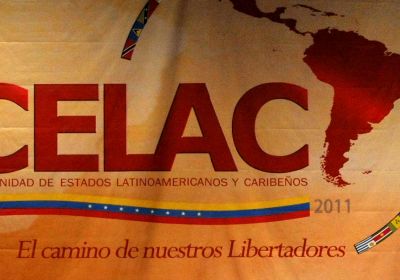 Venezuelan President Nicolas Maduro has called for an “eradication” of “colonialism” in Latin America at the annual summit of the Community of Latin American and Caribbean States (CELAC). During the summit held in Cuba’s capital, Havana, over January 28 and 29, Maduro called for Puerto Rican independence and an end to British administration of the Falklands/Malvinas Islands, to which Argentina claims sovereignty. Puerto Rico was offered full membership of CELAC under a proposal made to the summit by Venezuela.
Venezuelan President Nicolas Maduro has called for an “eradication” of “colonialism” in Latin America at the annual summit of the Community of Latin American and Caribbean States (CELAC). During the summit held in Cuba’s capital, Havana, over January 28 and 29, Maduro called for Puerto Rican independence and an end to British administration of the Falklands/Malvinas Islands, to which Argentina claims sovereignty. Puerto Rico was offered full membership of CELAC under a proposal made to the summit by Venezuela. -
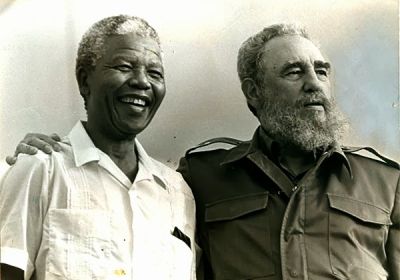 While the governments of the United States, Britain and Israel provided support to South Africa's arpatheid regime, the Cuban Revolution helped the anti-apartheid forces, sending thousands of volunteers in the 1970s and '80s to help Angolan forces defeat the apartheid regime's war on their country. On his release from prison, Cuba was one of the first places Mandela visited to thank the Cuban people for their assistence. The article below is abridged from a piece originally published in Green Left Weekly #23 in 1991. * * *
While the governments of the United States, Britain and Israel provided support to South Africa's arpatheid regime, the Cuban Revolution helped the anti-apartheid forces, sending thousands of volunteers in the 1970s and '80s to help Angolan forces defeat the apartheid regime's war on their country. On his release from prison, Cuba was one of the first places Mandela visited to thank the Cuban people for their assistence. The article below is abridged from a piece originally published in Green Left Weekly #23 in 1991. * * * -
The UN General Assembly has voted for the 22nd consecutive year to reject the US embargo, with 188 nations opposed the embargo and three abstentions. Only the US and Israel voted in favour of the continuation of the embargo, which has been in place since 1960. The UN resolution is non-binding. On October 29, Cuba's foreign minister Bruno Rodriguez described the embargo as “extraordinary” and “barbaric”.
-
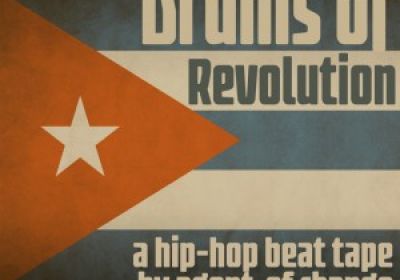
On July 26, radical hip-hop producer Agent of Change released a "beat tape" to mark the 60th anniversary of the start of the Cuban Revolution. Agent of Change, also known as London-based activist and writer Carlos Martinez, said: "The 18 hip-hop instrumentals - with a couple of feature verses from Fidel Castro and Nelson Mandela - celebrate Cuban culture, drawing influence and samples from Cuba’s diverse musical heritage."